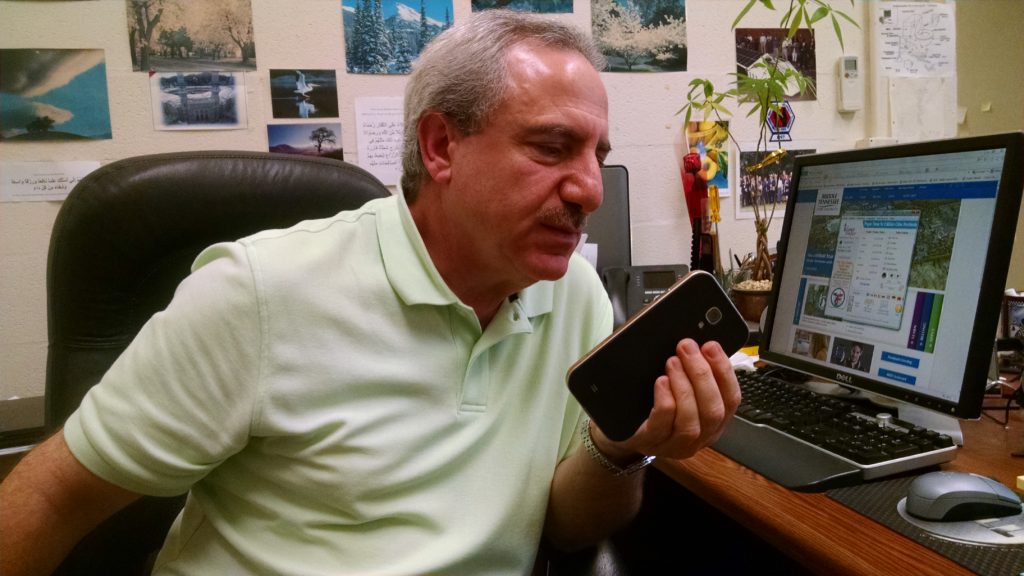
Every Friday afternoon, Saleh Sbenaty sits down in his cluttered office, pulls out a cell phone and calls his 80-year-old mother in Damascus.
“Hallo!”
“Salaam, mama.”
It’s nearly midnight in the Syrian capital, but this is the one time they can catch up.
On this week, Sbenaty’s mother tells him that a bomb has gone off in a park near her apartment.
And she’s in what’s supposed to be a safe part of Damascus — safe enough that two of Sbenaty’s siblings are living with her, along with seven nieces and nephews, ranging from ages 5 to 20. They’re among the 11 million Syrians who’ve been displaced, half of them within the country.
They moved in after the fighting in the 4-year-old conflict came too close to their suburban homes. In Damascus, they’ve been able to maintain some measure of normalcy. The water flows fairly regularly. The electricity goes out for only a few hours each day.
“Every time I call, I get heartburn,” says Sbenaty, a professor of engineering at Middle Tennessee State University. “You see the sadness. You see the misery that they’re living in. And you feel that from their voices.”
The flood of refugees into Europe this summer focused Americans’ attention on the conflict in Syria. But for Sbenaty, the crisis has always been as immediate as a telephone call.
Sbenaty left Syria in 1982, after a previous uprising against the regime left him disillusioned about the country’s future. He came to Tennessee as a graduate student, and he hasn’t even visited Syria since 1988.
“Once you are accustomed to this type of freedom and living over here, you cannot go back and shut up.”
But the rest of Sbenaty’s family has stayed behind. They’ve found refuge in his mother’s flat, which is surrounded by government offices.
About a dozen people live in the apartment full-time. But it also serves sometimes as a haven for two other brothers and their families. They frequently stay over when the conflict comes too close to their homes in other parts of the capital.
“So, it’s a circus. It’s just unbelievable.”
But not everyone in Sbenaty’s family has stayed: One nephew fled to Sweden rather than get drafted. Sbenaty has offered to help other family members move out, but it’s expensive.
“And then also, they’re besieged,” says Sbenaty. “You cannot get your passport and go anywhere you want like a U.S. citizen can.”
On this night, Sbenaty’s family is safe. No one was injured by the bomb in the park.
They’ve been lucky, in that no one in his immediate family has died.
But, Sbenaty says, a friend’s mother was hit by shrapnel a few months ago. The wound was minor, but with no medicine, it became infected, and she died.
“She could have been saved.”
Some in his family don’t think he should be telling an American reporter about their situation. They worry word will get back to the regime.
One brother even fears for Sbenaty’s safety. He believes the regime of Syrian President Bashar al-Assad could reach and harm him in the United States.
“That’s what he believes.”
But Sbentay thinks the world needs to hear what his family is going through.
The conversation with his mother is short. After five minutes on the phone, he hangs up. No one else wants to talk. He gives a sigh.
“So yeah, this is the daily life, you know.”


